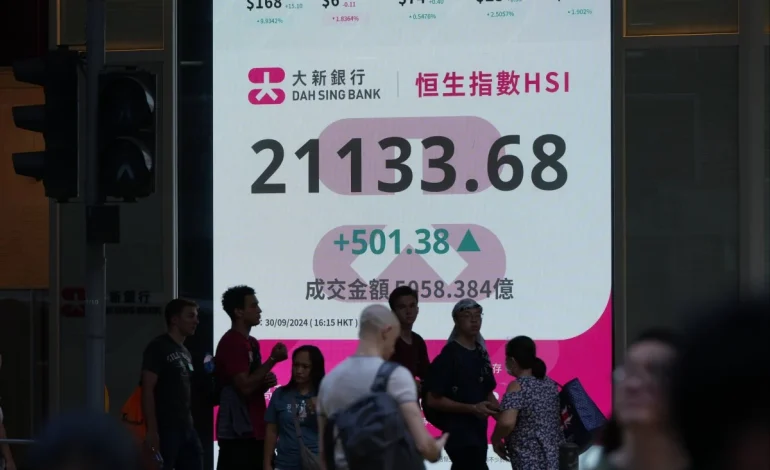The recent surge in Chinese equities has led to a notable decline in the costs associated with hedging against potential market declines.
Following last week’s announcement of substantial stimulus measures by the Chinese government, the Hang Seng China Enterprises Index experienced its largest weekly gain in nearly 13 years, positioning it as one of the leading performers globally for 2024.
The official measures introduced include interest rate cuts, reductions in banks’ reserve ratios, and increased spending initiatives aimed at stimulating consumer demand and the housing market. These developments have contributed to a 22% rebound in the Hang Seng China Enterprises Index over 11 consecutive days, marking its longest streak of gains since 2018.
Michael Oh, a portfolio manager at Matthews Asia, noted the sense of urgency from the Chinese government in this latest response.
“The rally can continue if investors are convinced that the Chinese government will maintain its support for the market,” he stated.
Oh added that valuations had reached historically low levels.
Prior to the stimulus announcement, Chinese stocks faced challenges amid disappointing economic data that raised concerns about the country’s ability to meet its annual growth target of 5%. The valuation of the China Enterprises index had recently dropped to about 7 times estimated earnings, below its five-year average.
The introduction of stimulus measures has altered the landscape, with the cost of volatility hedges dropping to the lowest levels since 2015. This shift has coincided with a significant increase in bullish options for Chinese stock exchange-traded funds (ETFs) in the United States, as investors—including notable figures like billionaire David Tepper—have increased their positions in Chinese equities. The volume of bullish contracts is now at its highest level since June, reflecting a shift in investor sentiment.
Despite the current optimism, some experts warn of potential pitfalls. Chris Murphy, co-head of derivatives strategy at Susquehanna International Group, cautioned that investors looking to hedge the market’s upward momentum should be mindful of a possible pullback in prices coupled with a decline in implied volatility. He suggested that alternative strategies, such as buying put spreads or protective collars, may be more effective in managing risk.
Marc Franklin, a senior portfolio manager at Manulife Investment Management, acknowledged that while concerns about the mainland’s economy persist, optimism currently dominates the market outlook. He predicts a meaningful short-term rally in Hong Kong and mainland Chinese stocks due to cautious investor positioning.
As the stock market rally continues, major indices in Hong Kong and mainland China have seen remarkable gains, with the Hang Seng Index rising by 2.4% and the Shanghai Composite Index advancing by 8.1% for the month of September. Trading volumes reached record highs, reflecting increased activity as retail traders and institutional investors rushed to capitalize on bullish market sentiment.
James Wang, head of China strategy at UBS in Hong Kong, expressed confidence in sustained near-term momentum driven by improved market sentiment and low investor positioning.
Bloomberg and South China Morning Post contributed to this report.









